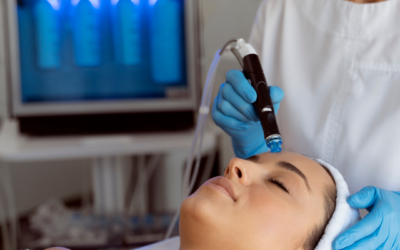
Protect yourself against skin cancer.
Our mission here at Forefront Dermatology includes a commitment to keeping you aware and informed about your skin, your skin health and its role in your overall health. That’s what we mean when we say, “We’re About Education.” And when it comes to educating you about your skin and its role in your general health, skin cancer is perhaps the most important topic to cover. One in five Americans will develop skin cancer during their lifetime. That’s a lot of people, with more than two million diagnosed each year. Like most cancers, the key to getting effective treatment for skin cancer is early detection. But prevention is always the first step, because your best protection against skin cancer is to avoid it altogether. To prevent skin cancer, always take these simple measures:
- Avoid prolonged exposure to the sun, especially during the heat of the day (10am to 4pm).
- Wear sunscreen, SPF 30 and above, reapply it every two hours and again after getting out of the water (even if it is “waterproof”).
- Wear protective clothing and sunglasses.
- Don’t use tanning beds.
Of course, even preventive measures can’t fully protect you from skin cancer, particularly resulting from exposure before prevention was on your mind. The key to better outcomes, and even life-saving treatment, is to detect skin cancer early, when there is still time to make a difference. Specifically, early detection starts with skin self-exams, for which Forefront Dermatology’s specialists suggest you set aside time each month to closely look at your skin. Here are some important tips for conducting a comprehensive self-exam:
- Use a mirror to see all areas of your body.
- Ask a spouse or friend to help. They provide that extra set of eyes and monthly motivation to keep you doing the exams.
- Conduct your exam in a well-lit area for easier visibility.
- Look closely at all areas of your body… between your toes, behind your ears, under your arms, on your scalp and on the palms of your hands and soles of your feet.
- Keep a “body log” to track birthmarks, moles, brown spots and blemishes so you can easily identify changes or new areas that develop.
If you find a lesion that looks suspicious, make an appointment to see your Forefront Dermatologist as soon as possible. But also remember that self-exams are only part of the equation. You should have regular professional skin examinations by a dermatologist every year. Only dermatologists have the training and experience to properly diagnose skin cancers, and they have the keen eye — and proper equipment — to spot problem areas early, when they are quite small and more effectively treated.





